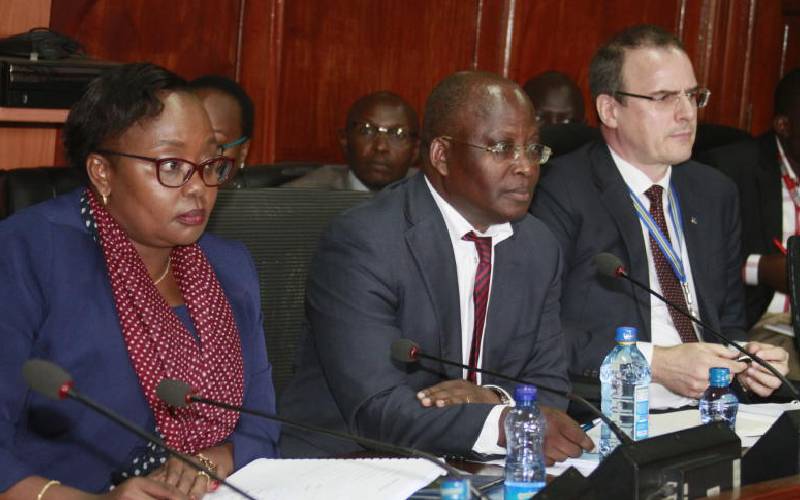×
The Standard e-Paper
Join Thousands Daily

Kenya Airport Authority Chief Executive Officer Jonny Andersen (right), Corporation Secretary Katherine Kisila (left) and General Manager Finance Alex Gitari when they appeared before the National Assembly Public Investment Committee. [Boniface Okendo, Standard]
There could be plans to fast-track the deal to hand over Jomo Kenyatta International Airport to the national carrier despite legal concerns, unionists have claimed.